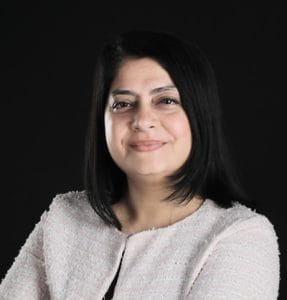Complicated Grief Therapy in Dubai
Key Summary: Complicated Grief Therapy in Dubai
- Grief extends beyond loss of life—it can include losing identity, culture, roles, transitions, or support systems. Grief gets complicated when the loss is traumatic, sudden, or unresolved, or when grief continues to disrupt daily life long after the event.
- Signs of unresolved grief may include intense yearning, rumination, numbness, guilt, avoidance, a sense of meaninglessness, and difficulty functioning.
- The therapeutic path offers a safe, structured process through the layers of shock, anger, guilt, spiritual conflict, and unfinished business.
- Core methods used include IFS therapy, which helps compassionately engage inner parts holding grief and protective patterns, and EMDR therapy, which allows reprocessing traumatic grief-related memories to reduce their emotional intensity.
- Dr Millia Begum is a UK-trained Consultant Psychiatrist, Certified IFS Therapist, and former EMDR Europe Consultant with over 25 years’ clinical experience in Dubai.

What Is Grief? When Is It an Issue?
Grief is an emotional, physical, and spiritual response to loss. It isn’t only about death—grief is also felt during key life events such as losing jobs, relationships, support structures, homes, or countries. Invisible losses also bring grief from losing identity, dreams, hopes, and the meaning or purpose of life.
Seeking Support for Grief
When grief stays heavy for months and begins to affect sleep, focus, or relationships, it may be time to seek support from a bereavement counsellor or grief therapist in Dubai.
NHS: Grief & Bereavement Support | APA: Grief | Harvard Health: Grief & Loss
Book Your Grief Therapy Session in Dubai

PTSD from Traumatic Loss or Death
When a loved one dies in a sudden, violent, or shocking way, the event itself can act like a trauma. This may lead to PTSD in addition to grief.
Key features may include:
- Re-experiencing the death: flashbacks, nightmares, or intrusive memories
- Avoidance of reminders: steering clear of things, places, or conversations linked to the death
- Heightened threat perception: feeling constantly on edge, hypervigilant, or easily startled
- Emotional numbness, guilt, or intense distress tied to the circumstances of loss
- Impaired daily functioning: difficulty with work, relationships, sleep, and concentration

Prolonged Grief Disorder (ICD-11)
Symptoms often include:
- Persistent, intense longing or yearning for the deceased
- Preoccupation with memories or thoughts of the deceased
- Difficulty accepting the death
- Emotional pain — sadness, guilt, anger, blame
- Feeling life is meaningless or empty
- Emotional numbness or inability to feel positive emotions
- Avoidance of reminders of the loss
- Withdrawal from social activities or daily routines
For diagnostic criteria and more detail: Boelen & Lenferink (ICD-11 PGD)
Difference: Grief vs Depression
When Does Grief Get Complicated?
Grief that is left unattended or suppressed may evolve into complicated grief (also known as prolonged grief disorder). Especially for expats in Dubai, extra layers—such as distance from support, cultural differences, and isolation—can make healing harder.
Some situations where grief becomes complicated include:
- Traumatic or sudden deaths (e.g. accidents, suicides)
- Conflicted or unresolved relationships with the deceased
- Post-death family conflict, resentment, or anger
- Avoidance of emotional processing or suppression
- Shame, stigma, or taboo around the cause of death
- Losses perceived as preventable, leading to guilt or self-blame
For more on symptoms and careful diagnosis, see Mayo Clinic: Complicated Grief – Symptoms & Causes. And for how clinicians assess and treat it, see Mayo Clinic: Diagnosis & Treatment of Complicated Grief.
When Should You Seek Help for Grief?
You may want to consider grief therapy in Dubai if you are:
- Continuing to feel emotionally overwhelmed and unable to function long after the loss
- Experiencing persistent guilt, rumination, or replaying painful scenes
- Struggling with daily functioning due to grief
- Feeling isolated during your mourning process
- Experiencing anxiety, panic attacks, or health-related fears following a loss
Seeking timely support from a professional grief therapist near you can make all the difference. Therapy provides a safe, compassionate space to process your loss and begin healing.
What Does Grief Therapy Involve?
Grief therapy in Dubai offers a safe and structured way to process loss. A therapist helps you gently explore the emotional and spiritual impacts of grief, while supporting you in regaining stability and meaning.
The key elements a grief therapist may explore include:
- Shock and numbness: disbelief, confusion, and emotional shutdown
- Guilt and self-blame: responsibility, regret, or self-punishment
- Anger and resentment: directed inward, outward, or toward others
- Spiritual conflict: struggles or questioning a higher power
- Unfinished business: unspoken words or unresolved actions
Through professional grief therapy, clients can safely explore these layers, gain insight into internal conflicts, and begin to heal from ruptures caused by loss.
Can Therapy Help with Complicated Grief?
No matter when grief began, healing often needs more than time — it needs support. If you notice signs of complicated grief, trauma-informed therapies in Dubai (like IFS or EMDR) can help carry the burden.
These approaches can assist you in:
- Reducing the overwhelming intensity of grief
- Safely integrating painful memories into your life story
- Rebuilding connection, meaning, and purpose
Learn more about Internal Family Systems (IFS) and how it works. See also EMDR for Grief & Mourning for how EMDR helps process trauma in grief.
FAQs — Grief & Therapy
Can I get better with grief?
Yes. Grief often softens over time with support, reflection, and healing work. Therapy helps you move from being overwhelmed by grief to integrating it into your life in a healthier way.
How long does it need to get better?
There’s no fixed timeline. Many people start to feel meaningful relief within a few months, while deeper healing often takes 6–12 months (or more) depending on the complexity of the loss and other life factors.
What if I “forget” the person if I do this work?
That’s a common concern. Therapy doesn’t aim to erase memories. Rather, it helps you carry those memories with less pain — so you can remember and honor your loved one without being consumed by suffering.
How can therapy help my grief?
Therapy gives you a safe, guided space to:
- Process and integrate pain instead of suppressing it
- Work through guilt, regret, or relational conflicts
- Rebuild meaning, purpose, and connection
- Learn coping tools for intrusive thoughts, emotional overwhelm, and loss of function
How Can Internal Family Systems (IFS) Therapy Help with Grief?
Internal Family Systems (IFS) provides a compassionate framework to work with grief by helping you engage with your internal “protector” parts — those parts that try to shield you from the pain of loss.
These protective parts may appear as:
- Numbing, “holding it together,” or trying to stay strong
- Overworking, overachieving, or controlling
- Suppressing or inhibiting feelings to avoid pain
- Distracting through constant activity
- Comfort-seeking or addictive behaviors
Through IFS therapy, these protectors are approached with curiosity and compassion. Gradually, this allows the deeper grief (held by vulnerable parts) to be expressed and integrated safely — helping you heal, carry your loss, and restore internal harmony.
For authoritative information about IFS and its theory, see the IFS Institute: What Is Internal Family Systems? Also, for a review of evidence and emerging research on IFS, see “Exploring the Evidence for Internal Family Systems Therapy”. Another helpful conceptual resource is Grief & IFS: Mapping the Terrain for how grief can be understood through an IFS lens.
How Can EMDR Therapy Help with Grief?
EMDR therapy for grief
EMDR (Eye Movement Desensitization and Reprocessing) helps release emotional traumas that often accompany loss, such as guilt, shock, disbelief, intrusive images, nightmares, and anxiety.
By accessing memory networks linked to grief and trauma, EMDR helps the brain reprocess painful experiences and reduce their emotional intensity—without requiring you to relive them in detail.
About Dr. Millia
Dr. Millia Begum is a trained trauma specialist with over 25 years of clinical experience in psychiatry and therapy. She trained in the UK’s NHS system and served the NHS in various senior roles.
is a trained trauma specialist with over 25 years of clinical experience in psychiatry and therapy. She trained in the UK’s NHS system and served the NHS in various senior roles.
She is a former EMDR Europe Approved Consultant, EMDR researcher, and board member of the EMDR Association UK. She is now a member of the EMDR International Association (EMDRIA).
Dr. Millia is a Certified Internal Family Systems (IFS) Therapist, bringing a compassionate, parts-informed approach to her work with clients in Dubai.
📞 Contact Dr. Millia
If you would like to book a consultation or learn more about services, please get in touch:
- Clinic: First Psychiatry Clinic
- Address: 975 Al Wasl Road, Dubai, UAE
- Phone: +971 55 355 7855
- Email: info@milliabegum.ae
- Website: milliabegum.ae
📍 Location & Opening Hours
Opening hours
- Monday: 09:00 – 18:00
- Tuesday: 09:00–18:00
- Wednesday: 09:00–18:00
- Thursday: 09:00–18:00
- Friday: 09:00–18:00
- Saturday: 09:00–18:00
- Sunday: 09:00–18:00